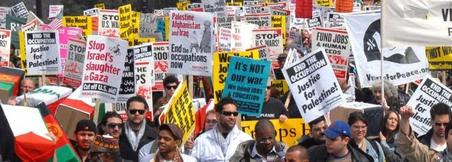No major news source released a national poll in the two week period following the second debate, compared to five polls released by seven major news organizations after the first debate. For example, CNN released DNC-certified polls on a regular monthly basis since March until after the Detroit debate (which CNN co-hosted) when they inexplicably stopped releasing polls.
Following the first debate in Miami, 14 of the DNC’s qualified polling organizations released numbers, and four of these organizations releasedmultiple polls. This contrasts starkly with the almost dormant activity of these same polling organizations following the second debate.
The delayed release of polls so long after the debates is particularly harmful to candidates with lower name-recognition. Delayed poll releases are an advantage for high-name recognition candidates such as Vice President Joe Biden and Sens. Elizabeth Warren, Bernie Sanders and Kamala Harris.
DNC’s polling criteria is unknown; disadvantages Rep. Gabbard
In addition, the campaign is concerned that the DNC has not made their criteria for poll selection known and, in some cases, the DNC is relying on inferior, less accurate polls.
As of Aug 20th, Rep. Gabbard has qualified for two DNC-certified polls, but she has exceeded 2% support in 24 uncertified non-qualifying polls since June 28 (as reported by Real Clear Politics and FiveThirtyEight).
Rep. Gabbard’s qualifying/non-qualifying polls above 2% since June 28th
DNC-Qualifying Polls Over 2% Since June 28th
- New Hampshire (CBS/YouGov) 2% (July 2019)
- National (CNN/SSRS) 2% (July 2019)
Non Qualifying Polls 2% and Over Since June 28th (national and early states only) (Currently 24)
- National (Harvard/Harris) 2% (July 2019)
- National (Emerson) 2% (July 2019)
- National (Economist/YouGov) 2% (July 2019)
- New Hampshire (Change Research/PollerCoaster) 2% (July 2019)
- South Carolina (Change Research/PollerCoaster) 2% (July 2019)
- New Hampshire (603/Change Research) 3% (July 2019)
- National (ABC News/Washington Post) (July 2019) (*qualifying poll but “non-qualifying” question. received 2% in open-ended question)
- National (The Economist/YouGov) 2% (July 24th 2019)
- National (YouGov/PerryUdem) 2% (July 29th)
- National (ChangeResearch) 2% (July 29th 2019)
- National (Echelon Insights) 2% (July 29th 2019)
- National (The Economist/YouGov) 2% (July 31st 2019)
- National (HarrisX) 3% (August 2nd 2019)
- National (HarrisX) 2% (July 30th 2019)
- National (HarrisX) 2% (July 31st 2019)
- New Hampshire (Suffolk University/Boston Globe) 3% (August 6th 2019)
- National (The Economist/YouGov) 3% (August 7th 2019)
- National (ChangeResearch) 2% (August 8th 2019)
- New Hampshire (Gravis Marketing) 5% (August 13th 2019)
- National (YouGov/The Economist) 2% (August 14th 2019)
- Iowa (ChangeResearch) 2% (August 15th, 2019)
- South Carolina (ChangeResearch) 2% (August 15, 2019)
- Nevada (Gravis Marketing) 2% (August 20th 2019)
- National (The Economist/YouGov) 2% (August 21st 2019)
While conventional wisdom might assume DNC-certified polls are more accurate than non-qualifying polls, this is not always true. Many non-qualifying polls are more accurate than the DNC’s preferred polls (Sources: American Research Group and FiveThirtyEight).
For example, Rep. Gabbard had 3% support Suffolk and Emerson polls (both rated B+). These polls are not approved by the DNC, but received higher accuracy ratings on FiveThirtyEight than some other DNC-approved polls, such as NPR (rated B-). In addition, Rep. Gabbard met the 2% threshold in the Politico/Morning Consult poll, which is non-qualifying and is rated the same as the DNC-“certified” NPR poll. The DNC also “certifies” a poll taken by SurveyMonkey, which received a “D-” accuracy rating, just because the pollster was commissioned by NBC, which is a DNC-approved sponsor.
We are calling on the DNC to certify the Boston Globe/Suffolk University poll and the Economist/YouGov polls, which show that Congresswoman Gabbard increased her support to 3%, as well as the Post and Courier poll, conducted by the highest-circulation newspaper in South Carolina. There is no justifiable reason for the DNC to exclude these polls, or polls from other credible organizations.
Additional background and commentary from Michael Tracey
Tulsi Gabbard is on the verge of being excluded from the next Democratic presidential debate on the basis of criteria that appear increasingly absurd.
1. Take, for instance, her poll standing in New Hampshire, which currently places Gabbard at 3.3% support, according to the RealClearPolitics average as of Aug. 20. One might suspect that such a figure would merit inclusion in the upcoming debates -- especially considering she’s ahead of several candidates who have already been granted entry, including Cory Booker, Amy Klobuchar, Beto O’Rourke, and Andrew Yang.
2. But a poll sponsored by the newspaper with the largest circulation in New Hampshire (the Globe recently surpassed the New Hampshire Union Leader there) does not count, per this cockamamie criteria.
3. A South Carolina poll published Aug. 14 by the Post and Courier placed Gabbard at 2%. One might have again vainly assumed that the newspaper with the largest circulation in a critical early primary state would be an “approved” sponsor per the dictates of the DNC, but it is not. Curious.
4. But Gabbard has polled at 2% or more in six additional YouGov polls -- except those polls are sponsored by The Economist, not CBS. Needless to say, The Economist is not a “sponsoring organization,” per the whims of the DNC. It may be one of the most vaunted news organizations in the world, and YouGov may be a “qualified” polling firm in other contexts, but the DNC has chosen to exclude The Economist’s results for reasons that appear less and less defensible.





